April 15, 2014 •
Chicago Board of Ethics Issues Revised Informational Bulletins
The City of Chicago Board of Ethics recently released new ethics bulletins. Two revised brochures provide up-to-date guides for the public as well as for city employees and elected officials. Both include new provisions covering whistleblower protection and the duty […]
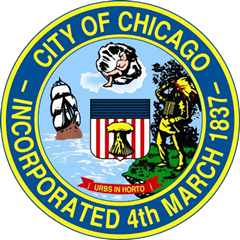
The City of Chicago Board of Ethics recently released new ethics bulletins. Two revised brochures provide up-to-date guides for the public as well as for city employees and elected officials. Both include new provisions covering whistleblower protection and the duty of officials, employees, and city contractors to report corrupt or unlawful activity.
A third brochure is also available pertaining to outside employment for city employees.
All new or revised bulletins are available for public viewing on the Ethics Department website.
April 15, 2014 •
We’re a Proud Sponsor of YouToo Social Media Conference 2014
On April 11, Megan Huber, Joe May, Elliott Postlewait, and Jim Sedor from State and Federal Communications, Inc. attended the 2014 YouToo Social Media Conference at Kent State University. The event was co-hosted by the Akron Area Public Relations Society […]
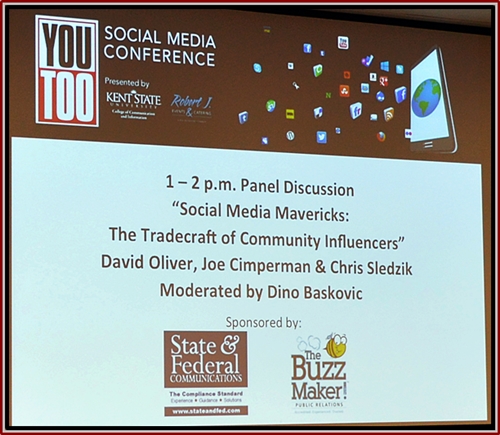
On April 11, Megan Huber, Joe May, Elliott Postlewait, and Jim Sedor from State and Federal Communications, Inc. attended the 2014 YouToo Social Media Conference at Kent State University. The event was co-hosted by the Akron Area Public Relations Society of America (PRSA) and the Kent State Public Relations Student Society of America (PRSSA).
State and Federal Communications was proud to be a sponsor of this great conference.
YouToo never fails to be an extraordinary place to learn about best practices and latest strategies in social media communications. Some of the top moments included the opening plenary with Andrea Weckerle, keynote speaker Danny Brown, and a lively panel with Brimfield Police Chief David Oliver and Cleveland City Councilperson Joe Cimperman.
You can see the lineup of speakers on the event page. I would highly recommend keeping a watchful eye on YouToo’s YouTube channel for videos from the 2014 conference!
Thank you, Akron Area PRSA and Kent PRSSA. We had a wonderful time.
April 14, 2014 •
Proposed U.S. Legislation Would Require 48 Hour Disclosure of Contributions of More Than $1,000
U.S. Sen. Angus King and Rep. Beto O’Rourke have introduced legislation requiring all political committees to disclose contributions of more than $1,000 within 48 hours. House Resolution 4397 and Senate Bill 2207, which were introduced on April 3, and House […]
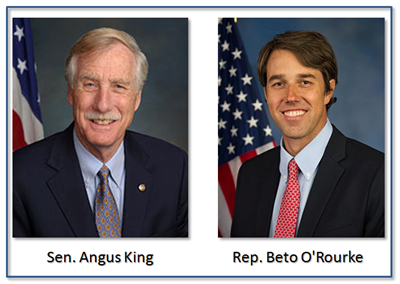 U.S. Sen. Angus King and Rep. Beto O’Rourke have introduced legislation requiring all political committees to disclose contributions of more than $1,000 within 48 hours.
U.S. Sen. Angus King and Rep. Beto O’Rourke have introduced legislation requiring all political committees to disclose contributions of more than $1,000 within 48 hours.
House Resolution 4397 and Senate Bill 2207, which were introduced on April 3, and House Resolution 4442, which was introduced on April 9, mandate the same threshold and disclosure requirements. The bills also apply the 48 hour reporting requirement to transfers of funds from joint fundraising committees.
King, in his weekly YouTube address, made clear this legislation is in reaction to the April 2 U.S. Supreme Court decision in McCutcheon v. Federal Election Commission, which found aggregate contribution limits unconstitutional.
Despite highly publicized criticism of a Washington law allowing legislators to accept meals from lobbyists on “infrequent occasions”, the Washington State Legislature failed to pass any bills addressing the ambiguity before its adjournment in March. Senate Bill 6414 contained a […]

Despite highly publicized criticism of a Washington law allowing legislators to accept meals from lobbyists on “infrequent occasions”, the Washington State Legislature failed to pass any bills addressing the ambiguity before its adjournment in March. Senate Bill 6414 contained a provision requiring the Legislative Ethics Board to define “infrequent occasions” and further required the development of an electronic reporting system enabling lobbyist reports to be searched electronically by the public.
This bill and others did not make it out of committee before the legislature adjourned and will not carryover to the next session. As a result of the legislature’s failure to pass any pertinent legislation, the Legislative Ethics Board has independently taken on the task of defining “infrequent occasions”.
The Board will hold a public meeting Tuesday, April 15 at 12 p.m. in Hearing Room 3 of the John A. Cherberg Building, 298 15th Avenue SW, Olympia, Washington. Board Chair Kristine Hoover set the meeting to listen and gather information from the public and to get public feedback on what the word “infrequent” should mean.
Delaware Attorney General Beau Biden and Elections Commissioner Elaine Manlove are appealing a federal district court ruling, enjoining enforcement of a Delaware campaign finance law. Section 8031 of the Delaware Election Disclosures Act requires any person who makes an expenditure […]

Delaware Attorney General Beau Biden and Elections Commissioner Elaine Manlove are appealing a federal district court ruling, enjoining enforcement of a Delaware campaign finance law.
Section 8031 of the Delaware Election Disclosures Act requires any person who makes an expenditure for a third-party advertisement exceeding $500 during an election period to file a report with the Elections Commission, including the names and addresses of each person who has made contributions exceeding $100. The district court found the disclosure provision to be too broad and likely unconstitutional.
Biden and Manlove are appealing the ruling.
Gov. Sam Brownback has vetoed a bill increasing the spending threshold for lobbyist registration. Senate Bill 99 would have raised the expenditure threshold triggering lobbyist registration from $100 per calendar year to $500 per calendar year. The increased threshold was […]
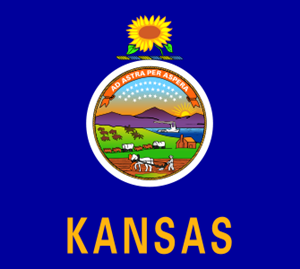
Gov. Sam Brownback has vetoed a bill increasing the spending threshold for lobbyist registration. Senate Bill 99 would have raised the expenditure threshold triggering lobbyist registration from $100 per calendar year to $500 per calendar year.
The increased threshold was recommended by the state ethics commission because the current threshold had not been increased in 25 years.
In vetoing the bill, Gov. Brownback stated he understood the bill’s purpose and intent but believed the current threshold better served the interest of government transparency.
April 14, 2014 •
San Diego Ethics Commission Fines Straw Donor
The Ethics Commission fined Marc Chase $80,000 for funneling illegal contributions to the 2012 campaigns of San Diego County Dist. Atty. Bonnie Dumanis and ex-Mayor Bob Filner. Chase, the co-owner of a luxury car dealership in La Jolla, admitted he […]

The Ethics Commission fined Marc Chase $80,000 for funneling illegal contributions to the 2012 campaigns of San Diego County Dist. Atty. Bonnie Dumanis and ex-Mayor Bob Filner. Chase, the co-owner of a luxury car dealership in La Jolla, admitted he laundered money from Mexican businessman Jose Susumo Azano Matsura into the mayoral campaigns of Dumanis and Filner.
Azano was a major customer of Chase, who served as a “straw” donor to hide Azano’s name. Election law forbids contributions from foreign nationals.
Chase also pleaded guilty in federal court to eight misdemeanor counts of campaign funding violations. He could face eight years in prison when sentenced Nov. 13, 2014.
Photo of the San Diego skyline courtesy of Tomcio77 on Wikimedia Commons.
The State Board of Elections has issued a guidance memo following the U.S. Supreme Court’s ruling in McCutcheon v. Federal Election Commission. The board will no longer enforce a $10,000 aggregate limit on donors’ contributions to state candidates during a […]

The State Board of Elections has issued a guidance memo following the U.S. Supreme Court’s ruling in McCutcheon v. Federal Election Commission. The board will no longer enforce a $10,000 aggregate limit on donors’ contributions to state candidates during a four-year election cycle.
The memo states personal contributions are unlimited, but still must not exceed $4,000 to any one candidate. The McCutcheon decision held such aggregate limits violate constitutional protections of free speech. Political action committees in Maryland had no previous aggregate limit and remain limited to $6,000 per candidate.
The guidance is effective immediately.
April 11, 2014 •
Boston Mayor Announces Formation of Ethics Committee
On April 10, Boston Mayor Martin J. Walsh announced the formation of a city Ethics Committee. The committee will review all changes to the city’s Ethics Policy, implement a new Statement of Financial Interest for all city employees, create continuing […]
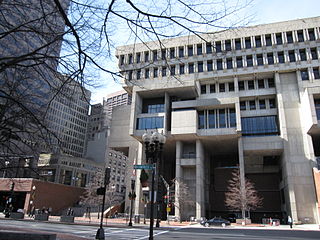
On April 10, Boston Mayor Martin J. Walsh announced the formation of a city Ethics Committee.
The committee will review all changes to the city’s Ethics Policy, implement a new Statement of Financial Interest for all city employees, create continuing education programs around ethics issues, and analyze existing practices and procedures.
In his press release, the Mayor said, “The citizens of Boston and those who interact with our government should be absolutely confident that their government is working for them, at the highest ethical standards.”
April 11, 2014 •
News You Can Use Digest – April 11, 2014
National: States Look Harder at Rules on Gifts to Lawmakers Philadelphia Inquirer – Amy Worden | Published: 4/6/2014 News that four state lawmakers from Philadelphia were caught on tape allegedly taking cash or gifts from a lobbyist has stoked new […]

National:
States Look Harder at Rules on Gifts to Lawmakers
Philadelphia Inquirer – Amy Worden | Published: 4/6/2014
News that four state lawmakers from Philadelphia were caught on tape allegedly taking cash or gifts from a lobbyist has stoked new calls for reform. Pennsylvania is not alone. Organizations that monitor ethics laws nationwide say the last decade has brought tighter state laws involving gift-giving, lobbying, and conflict-of-interest, some driven by similar scandals.
Federal:
Big Donors Fear Shakedown after Decision
Politico – Anna Palmer and Tarini Parti | Published: 4/2/2014
The U.S. Supreme Court’s ruling that the limit on an individual’s overall campaign contributions infringed on First Amendment rights cleared the way for donors to give the maximum amount to as many candidates and political parties as they wish during a two-year election cycle. The decision means a common excuse for brushing off fundraising requests – that potential donors, many of them lobbyists, have already “maxed out” their contributions under the cap – is now moot.
From the States and Municipalities:
Arizona – Ariz. Legislators Don’t Disclose Gifts, Resist Change
Arizona Republic – Mary Jo Pitzl | Published: 4/8/2014
Disclosure is not a comfortable topic at the Arizona Capitol, where four years ago the Fiesta Bowl scandal erupted over 28 current and former lawmakers accepting lavish trips and college-football game tickets. Since then, despite proposals to clarify disclosure rules, nothing has changed. State law requires elected officials to disclose gifts they received that were worth $500 or more. But that is not strictly followed, according to an Arizona Republic review of the annual reports. At least nine lawmakers did not initially report trips they took in 2013.
California – Suspended Senators Leave Millions of Constituents Short on Representation
Sacramento Bee – Jeremy White | Published: 4/6/2014
The legal troubles roiling Sacramento have left millions of constituents without the elected representatives they sent to the Capitol to advocate and vote for their interests. Three senators fighting criminal cases were suspended from office. When lawmakers are stripped of their most basic and potent tool for shaping policy – a vote on legislation – the constituents are also, in a sense, disenfranchised.
Delaware – Lobbying Fee Proposed to Pay for Oversight
Wilmington News Journal – Jonathan Starkey | Published: 4/9/2014
Legislation will be introduced in Delaware that would require lobbyists to pay an annual registration fee to help fund the state Public Integrity Commission. The bill would require lobbyists to pay the fee for each client they represent. Another measure filed recently would impose a fee for lobbyists who file disclosure reports late.
Georgia – Ethics Chief in Georgia Wins Suit over Ouster
Athens Banner Herald – Kate Brumback (Associated Press) | Published: 4/5/2014
A jury ruled former state ethics commission Executive Secretary Stacey Kalberman was unfairly forced from that job as retribution for investigating Georgia Gov. Nathan Deal’s 2010 campaign, and ordered the state to pay her $700,000. Kalberman’s lawyers tried to show the decision to cut her salary by $35,000 and to eliminate an aide’s job were a response to the pair’s desire to issue subpoenas for records in the investigation. Attorneys for the commission tried to establish the agency’s budget was in crisis and that was what motivated the cuts.
Indiana – Rep. Eric Turner, Facing Ethics Probe, Has Long and Deep Ties to Nursing Home Companies
Indianapolis Star – Tony Cook | Published: 4/4/2014
An Indiana House ethics committee is set to probe Rep. Eric Turner’s role in quashing legislation that would have halted new nursing home development and helped his son’s company. An Indianapolis Star review of Turner’s personal business interests found he has a stake in at least a half dozen companies that have been engaged in building, leasing, or investing in nursing home properties. The Star also found Turner did not list some of the companies on financial disclosure statements.
Iowa – Supreme Court Declines to Hear Iowa Campaign Finance Challenge
Reuters – Lawrence Hurley | Published: 4/7/2014
The U.S. Supreme Court declined to hear a challenge to an Iowa law that prohibits campaign donations from corporations but allows them from unions. By opting not to hear the case, the justices left intact an Eighth U.S. Circuit Court of Appeals ruling from June 2013 that upheld the ban.
Minnesota – Minnesota’s Limits on Campaign Donations to Be Challenged
Minneapolis Star Tribune – Rachel Stassen-Berger | Published: 4/8/2014
For decades, Minnesota law has said campaigns can raise 20 percent of their cash from lobbyists, PACs, and donors who give large amounts. After candidates hit that limit, they only can accept lesser amounts from subsequent contributors. Opponents say the “first come, first served” law is an unconstitutional limit of free speech, and the libertarian Institute for Justice will file a lawsuit challenging the statute.
Ohio – Ohio House Approves Eliminating Rule on Corporate Political Spending after Lengthy Debate
Cleveland Plain Dealer – Jeremy Pelzer (Northeat Ohio Media Group) | Published: 4/9/2014
The Ohio House passed legislation that would abolish a state rule restricting corporate political spending. Under the rule, corporations have to identify themselves in political ads and disclose money they spend in support of candidates. It also bars political spending made independently of campaigns by foreign-owned corporations and companies that recently received government contracts. House bill 483 now goes to the Senate.
Pennsylvania – Pa. Senate Passes Bill to Ban Cash Gifts to Legislators
Philadelphia Inquirer – Amy Worden | Published: 4/9/2014
The Pennsylvania Senate unanimously approved a bill that bans cash gifts to lawmakers and other elected and appointed officials in state and local government. The Senate also approved unanimously passed an ethics rule change for the chamber that carries the same provisions on cash and cash-like gifts. The only difference between the two is the bill caries the weight of the law so violators could be prosecuted. The ethics rule does not; it calls for a civil penalty.
Pennsylvania – Sources: U.S. prosecutors made no judgment on sting case
Philadelphia Inquirer – Craig McCoy and Angela Couloumbis | Published: 4/8/2014
The Philadelphia Inquirer reported federal officials never came to a final conclusion about the merits of a suspended legislative sting operation before Pennsylvania Attorney General Kathleen Kane asked them to halt that review. Kane, after revelations she decided to abandon the case in which several officials were caught on tape accepting cash and other gifts from an informant posing as a lobbyist, had said her decision had been endorsed by federal law enforcement officials who she has not identified by name.
South Carolina – SC Governor, AG Candidates Collected Excess Campaign Cash
The State – Andrew Shain | Published: 4/5/2014
An analysis by The State showed candidates for governor and attorney general in 2010 received $336,345 in campaign contributions above South Carolina’s legal limits. While the excessive donations represent a fraction of the amounts raised by these candidates, the newspaper said its analysis of state Ethics Commission data points to how campaigns can fail to follow campaign finance rules without getting caught by regulators.
Virginia – Va. Gov. Terry McAuliffe Wants Lobbyists to Report Gifts to Lawmakers’ Families
Columbus Republic – Alan Suderman (Associated Press) | Published: 4/8/2014
Virginia Gov. Terry McAuliffe amended an ethics bill that passed the General Assembly in the wake of a gifts scandal that led to corruption charges against former Gov. Bob McDonnell. McAuliffe’s proposed changes would require lobbyists to report what they spend on gifts and entertainment for both lawmakers and their families. Lawmakers will have to approve the governor’s changes.
Wisconsin – GOP’s Mike Ellis Caught on Recording Talking of Illegal Fundraising
Milwaukee Journal Sentinel – Patrick Marley and Daniel Bice | Published: 4/10/2014
A secretly recorded video produced by a conservative activist shows state Senate President Mike Ellis talking about creating and raising money for a committee to run negative ads against his Democratic opponent, which would be illegal for a candidate to do in Wisconsin. Ellis issued a statement acknowledging the conversation but said he learned the next day the proposal was illegal and did not pursue it.
 State and Federal Communications produces a weekly summary of national news, offering more than 80 articles per week focused on ethics, lobbying, and campaign finance.
State and Federal Communications produces a weekly summary of national news, offering more than 80 articles per week focused on ethics, lobbying, and campaign finance.
News You Can Use is a news service provided at no charge only to clients of our online Executive Source Guides, or ALERTS™ consulting clients.
April 10, 2014 •
House Bill 483 to Alter Ohio Campaign Finance Law
On Wednesday, April 9, the Ohio House of Representatives passed a large piece of Gov. Kasich’s mid-biennium budget proposal. Prior to passage, House Republicans added numerous amendments to House Bill 483; it is now more than 800 pages long. One […]
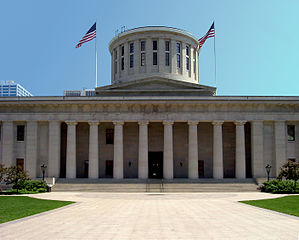
On Wednesday, April 9, the Ohio House of Representatives passed a large piece of Gov. Kasich’s mid-biennium budget proposal. Prior to passage, House Republicans added numerous amendments to House Bill 483; it is now more than 800 pages long.
One amendment voids administrative rule 111-3-05 and changes state campaign finance law by lifting the disclosure requirement for corporations and labor organizations making independent expenditures. It also allows foreign-owned corporations and corporations with state contracts to spend money promoting or opposing state candidates.
Former Secretary of State Jennifer Brunner issued the rule in 2011 and fears its repeal will make it easier for national political interests to operate state-based Super PACs.
The bill passed the House by a primarily partisan vote of 57-33 and will now be sent to the Senate for consideration.
Photo of the Ohio State Capitol by Alexander Smith on Wikimedia Commons.
On April 9, the Ontario, Canada Legislative Assembly held a second reading of Bill 179, which would amend the province’s Lobbyists Registration Act. The bill, introduced on March 24, redefines “in-house lobbyist” to include paid directors as well as employees […]
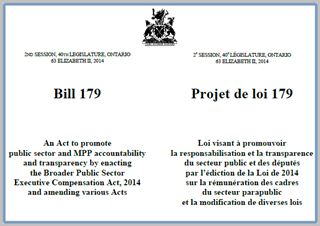
On April 9, the Ontario, Canada Legislative Assembly held a second reading of Bill 179, which would amend the province’s Lobbyists Registration Act.
The bill, introduced on March 24, redefines “in-house lobbyist” to include paid directors as well as employees and paid directors whose lobbying duties, when combined with those of the employer’s other employees and paid directors, would constitute a significant part of the duties of one employee or director.
The bill requires a single filing of returns by the senior officer of the employer instead of requiring in-house lobbyists themselves to file returns.
Additional amendments to the filing procedures include requiring returns to indicate whether the lobbyist was previously in public office, what the goal of the reported lobbying was, and to provide the name of any minister, member, or member of the minister’s or member’s staff who was lobbied.
The bill also increases penalties for convictions of any offense from a maximum fine of $25,000 to a maximum fine of $25,000 for a first offense and a maximum fine of $100,000 for subsequent offenses.
April 9, 2014 •
WGR Hosting Grassroots Event
Women in Government Relations (WGR) is hosting an event tomorrow, April 10, called “Grassroots’ Greatest Hits: Campaigns that Made a Difference” from 2 to 4 p.m. Our very own Federal Compliance Associate Rebecca South is a Co-Chair of WGR’s PACs, […]
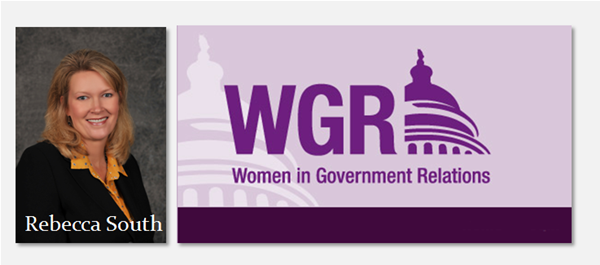
Women in Government Relations (WGR) is hosting an event tomorrow, April 10, called “Grassroots’ Greatest Hits: Campaigns that Made a Difference” from 2 to 4 p.m.
Our very own Federal Compliance Associate Rebecca South is a Co-Chair of WGR’s PACs, Politics & Grassroots Task Force, which organized this event.
Rebecca noted this will be an exciting session because leaders from three diverse organizations will be talking about their grassroots programs, offering creative ideas and the innovative ways they conduct advocacy. The speakers will be Kathleen Smith of Fresenius Medical Care North America, Tara Smith Anderson of the American Petroleum Institute, and Randi Chapman of the Alzheimer’s Association.
The WGR website offers this description: “An effective grassroots campaign can make all the difference in the outcome of a legislative or regulatory initiative. Join us for this engaging roundtable discussion and hear from organizations who have put together winning, innovative campaigns! Learn how they did it and how you can apply the same creative approaches in your organization.”
You can find registration information on this WGR event page.
Yesterday President Barack Obama signed an executive order to prevent federal vendors from prohibiting their employees from inquiring about, disclosing, or discussing their compensation with fellow workers. The April 8 order, titled “Non-Retaliation for Disclosure of Compensation Information,” is intended […]
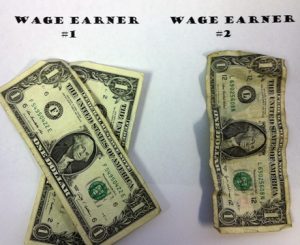
Yesterday President Barack Obama signed an executive order to prevent federal vendors from prohibiting their employees from inquiring about, disclosing, or discussing their compensation with fellow workers.
The April 8 order, titled “Non-Retaliation for Disclosure of Compensation Information,” is intended to discover, remediate, and help eliminate compensation discrimination.
The president’s order justified this prohibition by stating, “Federal contractors that employ [compensation discrimination] are subject to enforcement action, increasing the risk of disruption, delay, and increased expense in Federal contracting. Compensation discrimination also can lead to labor disputes that are burdensome and costly.”
The order takes effect immediately and will apply to new contracts entered into once the Department of Labor creates rules promulgating the order.
State and Federal Communications, Inc. provides research and consulting services for government relations professionals on lobbying laws, procurement lobbying laws, political contribution laws in the United States and Canada. Learn more by visiting stateandfed.com.

